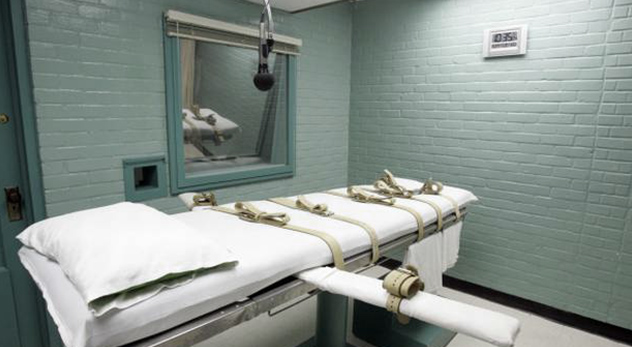In February, by a vote of 5-4, the U.S. Supreme Court turned down a petition from a death row inmate in Alabama who asked to have his execution delayed so he could have his imam by his side when he was put to death. The prison authorities had denied the request because their rules allowed only the Christian prison chaplain to be present in the execution chamber.
Assertedly for safety reasons, Domeneque Ray’s imam would have to stay on the other side of the glass, with the other observers. The Court found no violation of the Establishment Clause and Ray was executed without the benefit of clergy he wanted.
Last week, the Court took up a virtually identical case involving a Texas inmate who wanted his Buddhist spiritual adviser by his side. But this time, three justices—Samuel Alito, Brett Kavanaugh, and John Roberts—switched sides and the execution was put on hold.
What changed their minds? All we really have to go on is a solitary concurring opinion by Kavanaugh (in petitions for stays of execution the writing of opinions is optional), who explained his position as follows.
In this case, the relevant Texas policy allows a Christian or Muslim inmate to have a state-employed Christian or Muslim religious adviser present either in the execution room or in the adjacent viewing room. But inmates of other religious denominations—for example, Buddhist inmates such as Murphy—who want their religious adviser to be present can have the religious adviser present only in the viewing room and not in the execution room itself for their executions. In my view, the Constitution prohibits such denominational discrimination.
Well and good, but that is exactly the position that Justice Elaine Kagan took in the dissenting opinion she wrote on behalf of the four justices who supported Ray’s petition. Why did Kavanaugh assume it in Murphy’s case and not in Ray’s?
Ray’s petition was denied on the grounds that his request for the presence of his imam was not made in a timely manner. We know this because Justice Neil Gorsuch, who along with Clarence Thomas turned thumbs down in both cases, says so in a full-dress opinion in yet another death penalty petition, which the Court denied Monday. And in a footnote of his own, Kavanaugh says that Murphy’s petition was “sufficiently timely.”
Murphy filed his petition a month before his scheduled execution. Ray filed his a week before his execution, and just five days after being told that prison rules (which until then the prison had refused to give him) prevented his imam from being with him. Up to that point, all he had to go on was state law identifying “the spiritual advisor of the condemned” as one of those who may be present at an execution.
In other words, a timeliness difference of three weeks plausibly created by the state’s refusal to supply necessary information was sufficient for Kavanaugh (and Alito and Roberts) to wave away the constitutional prohibition on favoring any religion over another. Many observers found that hard to believe.
Some claimed that what really set the two cases apart was racism and Islamophobia—that Ray’s petition was rejected because he was an African-American and a Muslim while Murphy is a white man and a Buddhist. Others suggested that the switchers were influenced by the chorus of criticism from the right that greeted the Court’s response to Ray’s petition. Indeed, the Becket Fund, which has taken the lead in many religious liberty cases, filed a strong amicus brief on Murphy’s behalf that embraced the dissenters’ position in Ray.
The two explanations are not mutually exclusive. But going forward, I’d say there’s been a small step forward for religious pluralism in America. States committed to conducting executions would do well to enable those who are about to die to be accompanied by the spiritual adviser of their choice.
In the meantime, the priorities of the Supreme Court’s newly strengthened conservative wing have become a bit clearer. For Roberts, Alito, and Kavanaugh, the country’s religious rules of the road matter more than they do for Gorsuch and Thomas, whose enthusiasm for the death penalty, it seems, knows no spiritual bounds.






